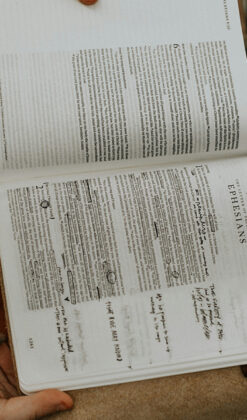I’ve come to believe that theology is best worked out in the context of real life. The city, the marketplace, the public square. Sometimes that’s where you learn things about God and life—and church—that you just can’t get from a textbook.
I started teaching at Eternity Bible College in Simi Valley, California, in Fall 2009. One of the reasons why I left my rather cushy university post at Cedarville University was because Cedarville (Ohio) was a town of 3,000 islanded between miles of cornfields. It was an isolated town populated largely by Christians—most of whom worked at the Christian university. I felt like I lived in a religious straitjacket. And I had a nagging sense my theological reflection was being shaped by my insulated theological geography. As a dry town, it was illegal to sell alcohol in Cedarville.
When I moved to Simi Valley, I was excited to spend time in public places to prepare for my theological lectures. One day, on the way to my office, I noticed a battered old sign just two blocks from my College. It read “PC’s Bar and Grill.” It was a dive bar with no windows and encased in old pickup trucks in what I guess might be a parking lot. I pulled into the dirt lot, somewhat anxious that some students might see their Bible College professor enter such a shady place in the middle of the day. Nervously, I slid into the dark room and tried to act like a regular as my eyes got adjusted.
“Whatcha drinking?” the weathered bartender asked. Quickly scanning the thin selection (Bud, Bud Light, Miller, Miller Lite, and Sam Adams), I went with the only respectable option: “Um…I’ll take a Sam Adams, thanks.”
We chit-chatted a bit as she tended to the zombied regulars, and then I spread out at a wobbly table and prepared for my Old Testament lecture. Between the cheap beer and free-wifi (and guaranteed isolation from students that might interrupt my study), I found myself growing quickly fond of my secret office. But a regular? I didn’t think it’d be prudent to become a regular at a dimly lit dive part ½ a mile from my Bible College.
Two months passed before I returned to PC’s. Once again, the sign caught my eye on my way to the office. I slammed on the brakes, steered into the parking lot, and pulled open the door and entered the darkness. My eyes met with the bartender—the same one, apparently—and she smiled: “Hey Preston. Sam Adams, right?”
When a bartender knows your name and your drink, that’s a sure sign of being a regular. I quickly scanned the dungeon to see if anyone there noticed the accusation, but the regulars didn’t bat an eye. Judgmentalism doesn’t exist in a dive bar. Everyone there knows they’re broken. Once my fears were tamed, I felt a satisfying sense of being known rush over me and cradle my heart. I’ve only met her once, and it was two months earlier. She knew my name and my drink.
We chatted a bit more this time and I found out that she grew up in a Lutheran church and taught Sunday school for several years. She wasn’t weirded out by my Bibles and theology books laid out across two of her tables. She seemed very happy to talk to a religious person, even though I never did know her name or her drink.
Over the next couple years, I officed out of PC’s once or twice a month. It wasn’t the cheap beer. I can buy cheaper beer at 7-Eleven. It wasn’t the free Wifi. My office had free Wifi. It was the strange warmth I felt when a stranger knew my name and seemed happy to see me. People don’t go to bars to drink. Drinks are expensive, even at cheap dive bars. People go to bars for community—to know and be known.
I recently found another dive bar here in Boise and I periodically turn it into a theological study. It’s called Hooligans and its regulars fit the name. I went there a few weeks ago and ordered a beer called “Irish Death,” because, well, when you’re at a dive bar called Hooligans and they have a beer called “Irish Death,” it might be sin to order anything else. As I was studying and writing, I couldn’t help but notice the spunky little bartender engaging the greasy old men at the counter with warmth and authenticity. I was shocked at how the men respected her and looked her in the eye—there was nothing sexual or degrading in their posture. She seemed to genuinely care about their wandering conversations and even perched up on a stool next to them and treated them as friends. I came back to Hooligans just yesterday. As I set up my computer on one of the sticky tables I hear a voice say, “Hey Preston, Irish Death?”
Sometimes I wish people at church knew my name or my drink. Sometimes I wish Christians would ask more questions or at least give the impression that they care about my life. I mean, my friends do. My friends are awesome. But friends are supposed to care. That’s why they’re my friends. But there’s something about a stranger’s unexpected remembrance of your name and a simple detail of your life like the drink you ordered two months prior.
I recently heard an inmate at the county jail say: “I am always welcomed back at the bars. So that’s where I always go.” Bars don’t have greeters at the door, and they don’t have to try hard to do community. Nothing feels forced; it feels natural and genuine. As if they really did remember my name and my drink.
People are drawn to spaces of belonging, places where people never want to leave and always want to come back. Sometimes I wish church was more like a dive bar.











